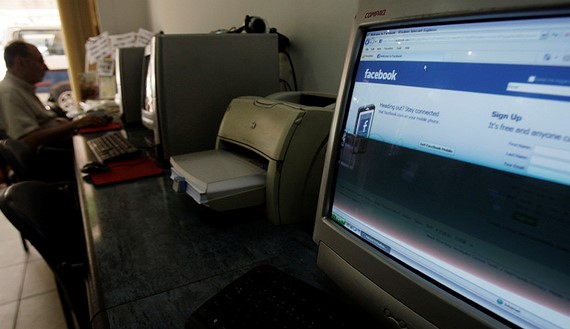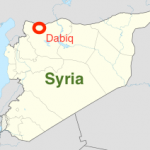By Khalid Hassan – Al-Monitor –
On Sept. 25, a judicial report was issued by the State Commissioners Authority, the advisory body for the State Council, supporting the Ministry of Interior’s decision to monitor social networking sites, follow up on activity on these sites and take all security measures necessary to address any threats to public security to ensure the best interest of the country.
This report stirred the ire of numerous activists and human rights defenders, who saw it as a new tool to intimidate, stifle voices and suppress the freedoms of social media users, especially since social networking sites played a key role in mobilizing young people, fostering protest movements and highlighting the shortcomings of President Hosni Mubarak’s regime before the outbreak of the January 25 Revolution in 2011.
All this began when the Ministry of Interior announced on May 11, 2014, the launch of new software that monitors internet activities, called the “Social Networks Security Hazard Monitoring Operation (public opinion measurement system),” aimed at developing the technical aspect of the security system at the ministry to counter terrorism, which poses a threat to the country’s security.
Maj. Gen. Mohammed Ibrahim, the interior minister at the time, said that the new software will not restrict freedoms in any way and will not breach Egypt’s Constitution and the law. He explained that it is rather intended to monitor security hazards by tracking new security issues that spread on social networking sites, especially in terms of terrorism.
This is especially true following the spread of information online about explosive devices — how to build them, obtain materials used in their manufacture and detonate them — in addition to tips on carrying out assassinations.
On June 17 of the same year, a number of human rights organizations launched a fierce attack on the Interior Ministry, calling this decision totally contrary to the constitution and a violation of all rights and freedoms enshrined in it. These rights include freedom of expression and free exchange of information, the right to privacy and the right to security.
These human rights organizations filed before Egypt’s administrative court a legal action under No. 63055/68 judicial, demanding a stay of execution and cancellation of this decision, both in the public domain related to the exchange of opinions and information and in the private domain in terms of conversations, letters and private calls.
However, the recent report issued by the administrative court disregarded all of these allegations and considered them wrong and unfounded. The report stressed that this decision does not conflict with the rights and freedoms guaranteed by the constitution and does not restrict freedom of opinion and expression and exchange of information, as alleged by some.
The report referred to the articles of the constitution that ensure these rights and freedoms. The articles specify that these freedoms and rights should not cross legal limits because they are not absolute and they fall under strict control if they are found to prejudice the country’s national security and threaten social peace. The report stated that it is, therefore, necessary to take all measures to protect the community and the public interest.
The judicial report said, “Freedom must be regulated so as not to be the cause of damage to individuals, the public opinion and state institutions. It was evidenced that social networks are used to incite violence and are manipulated by terrorist groups as a means to shed blood, which dramatically undermines public security and requires the Ministry of the Interior to take action to protect the community.”
The software searches for specific terms and vocabulary that are deemed to be in violation of the law or that incite people to topple the regime or destroy state institutions, spread chaos among citizens or disturb public ethics, and violate societal norms and ties. Moreover, the software will allow the submittal of reports to authorities about discussions on these sites.
Hussein Hassan, a human rights activist and legal researcher at the Egyptian Organization for Human Rights, told Al-Monitor, “The Minister of Interior’s decision is not based on a sound legal ground and even violates the law and the constitution, which guarantees to the citizens unprejudiced freedom of opinion and expression.” He said that he will challenge the court’s decision.
Article 57 of the Egyptian Constitution reads as follows, “Private life is inviolable, safeguarded and may not be infringed upon. Telegraph, postal, and electronic correspondence, telephone calls, and other forms of communication are inviolable, their confidentiality is guaranteed and they may only be confiscated, examined or monitored by causal judicial order, for a limited period of time, and in cases specified by the law. The state shall protect the rights of citizens to use all forms of public means of communication, which may not be arbitrarily disrupted, stopped or withheld from citizens, as regulated by the law.”
Moreover, Article 65 specifies, “Freedom of thought and opinion is guaranteed. All individuals have the right to express their opinion through speech, writing, imagery, or any other means of expression and publication.”
Hassan told Al-Monitor, “There is no turning back. We staged the revolutions of January 25 and June 30 for the sake of public freedoms. We will not accept any compromise of our freedoms. Freedom of expression is one of the tools of public freedom that we use, whether in our meetings or to express our opinions through social networks. President Mubarak’s regime tried to apply the mouth-muzzling policy and cut communication lines during the revolution but failed. He also failed to prevent citizens from expressing their opinion, and therefore the state should now reconsider its decision, which may lead to dire consequences.”
In turn, Mohammed Attiya, a political activist and member of the Coalition of Revolutionary forces, expressed his support for the decision. He told Al-Monitor, “The fact that the court endorsed the decision of the Ministry of the Interior is logical and constitutional, because some extremist groups are trying to incite the people against the Egyptian state, and we must fight them with full force, monitor and keep track of their activities to prevent them from harming the country’s national security.”
He added, “We now find direct and official incitement against the state institutions and symbols across social networking pages to the extent that we can see names and addresses related to killing operations targeting police officers, army members and judges. This is why it is a national security duty to monitor what is being published on the social networking pages. This duty cannot be neglected or undermined in any way.”
______________
http://www.al-monitor.com/pulse/originals/2016/10/egypt-court-support-decision-monitor-social-media-facebook.html?utm_source=Boomtrain&utm_medium=manual&utm_campaign=20161006&bt_ee=rCDieyloS4nLhBgnXhsWOPHWD6q89IdpnBDsF+mR/jmA6d9zFd8Glv6DNhwHJ87d&bt_ts=1475773900758






